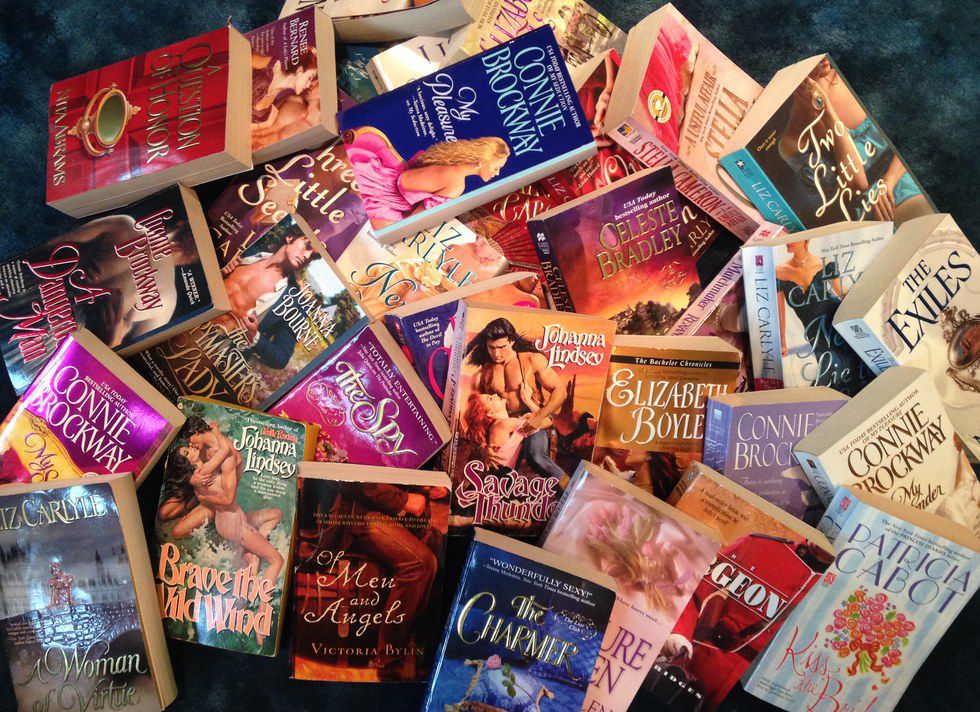As a romance writer, one of my biggest frustrations continues to be that romance is one of the most ridiculed genres in literature. It is not taken seriously. This is due to the elitism within the literary community and a variety of misconceptions about the romance genre. For writers and readers who feel ostracized and guilty about what they read, it can be frustrating to be teased about what they read.
I began reading romances when I was fourteen. In high school, I received funny looks from teachers when I carried one of my books with me to class. The shock and judgment grew even worse when I wrote my first romance novel in my senior year of high school. That was the year that "Fifty Shades of Grey" exploded and thrust the romance genre into the spotlight, which was both positive and negative. It showed that people did read romances, but it also displayed just how unaccepted romances were by some individuals, mostly those in the educational system. I always felt that the novels I read were being put down in favor of literary fiction, as though those books were somehow better.
While I was proud when I released my first romance novel, I also felt like some people looked at me in a different way. I got a lot of questions like "Is your book like Fifty Shades?" There was an assumption that just because I wrote romance, I automatically wrote a book like that.
What many people do not realize is that there are a variety of romance types. The main misconceptions about romances are that sex is the main focus of a romance novel. Most romances are categorized by "heat level." This term indicates the sexual content of the novel. "Sweet" is the term for novels that contain no sex scenes or minimal ones, such as the bedroom door closing behind a couple in a film. "Hot" is usually where most romance novels fall in the spectrum, which means that there are a few sex scenes throughout the book but not in graphic detail. "Spicy" romances, more commonly referred to as erotic, are where novels such as "Fifty Shades of Grey" would be categorized, which indicates that the sexual relationship between the couple is a more integral part of the relationship and that there will be more than a few sex scenes within the book.
Love scenes are a part of romance novels, but these books are so much more than that. The purpose of a romance novel is to explore the development of a romantic relationship between two people and the journey that it takes them on together and as individuals. Depending on the writer, this can be explored in a variety of ways.
I am lucky that college has been a different experience for me, that people have not been as judgmental about my reading or writing romances. However, among academics, I still sense a feeling of bias towards literary fiction and classic novels, almost as if one is not a serious reader if they do not read "something of substance." Romances are not considered to be quality reading and are passed off as fluffy, predictable, and pornography.
My trouble with these labels is that they are not true. Calling a romance predictable is only basing the book simply on the far that it will end happily, and what is wrong with that? Romances are all about a journey, and oftentimes, it is very complex. Sometimes, it takes more than one book for a couple to work through all of the complications that separate them. While it is a requirement for their to be a "happily ever after" or "happy for now" ending for a book to be considered a romance, the journey can still be surprising and gut-wrenching.
As far as romances being fluffy, it depends on the sub-genre a reader chooses. Many romances, particularly those in the erotic category, can be quite dark and intense. Sweet contemporary romances tend to be more fluffy, but there is nothing wrong with a book being enjoyable. Books are entertainment, after all.
The pornography accusation infuriates me. People demonize the genre simply because of sex scenes. Some may be gratuitous, but many times, romances use love scenes to further enhance the emotional connection between the characters. In some cases, it may also provide the reader with some insight into past physical or sexual traumas that a character has been suppressing. Not all of it is for titillation.
The point of books are that they should be an escape from reality, and the reader should enjoy them. Reading should not be all about searching for some deeper meaning that an author may or may not have intended for a reader to see. No one should be judged for what they read, and it is frustrating that individuals still feel the need to make others feel as though they are less because they prefer to escape in a romance. These novels took just as much time to create as any classic novel from English class, and people should think about that before they start to judge someone for what they are read. After all, what is the alternative? Not reading?




















